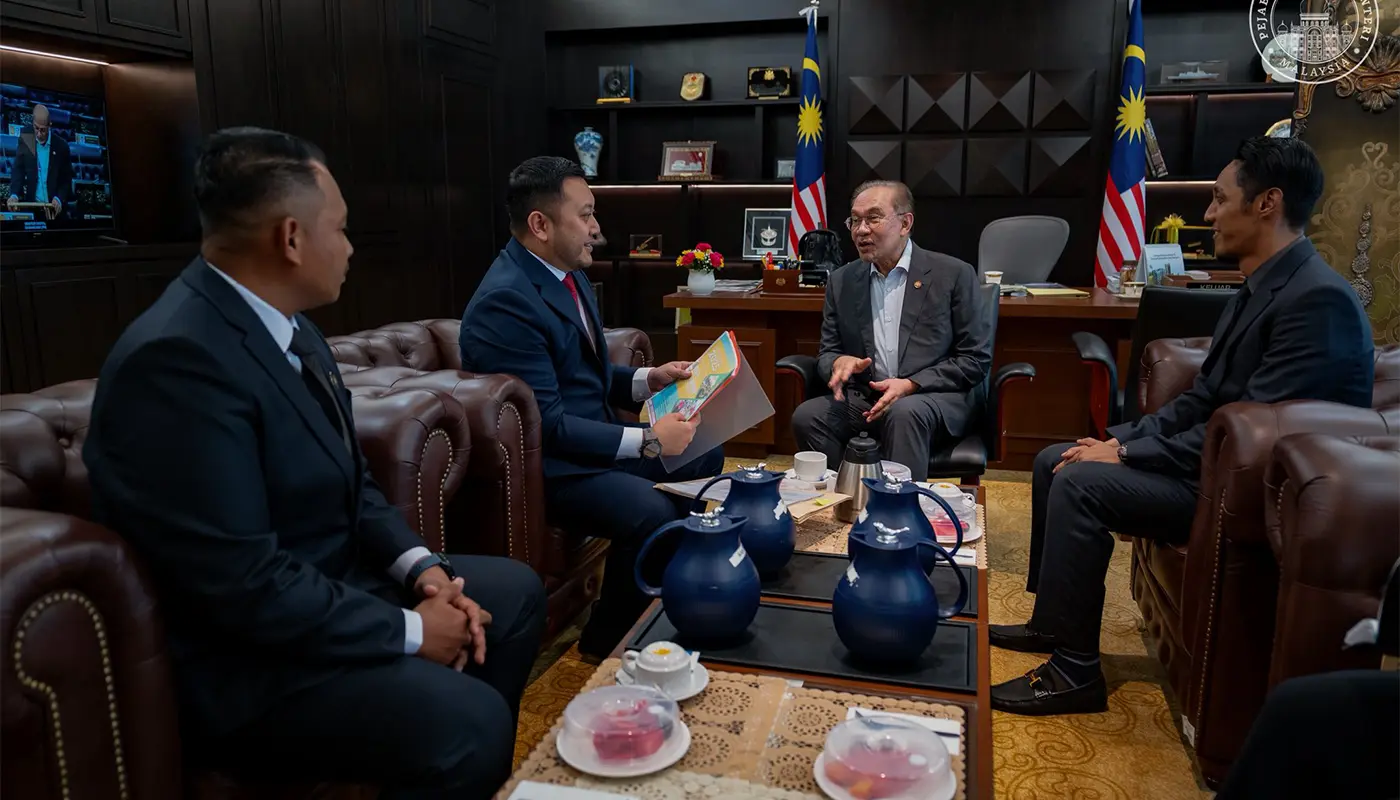KUALA LUMPUR – Prime Minister Datuk Seri Anwar Ibrahim has called for closer collaboration between the 4B Youth Movement Malaysia and grassroots organisations to ensure the group remains relevant in advancing the nation’s youth agenda.
The Prime Minister made the remarks following a courtesy call from the movement’s Supreme Council, led by its chairman Mohd Ridhwan Mohd Ali, in Putrajaya this week.
The meeting centred on opportunities for strategic cooperation with the Federal Government to strengthen youth empowerment as a driver of national progress.
Anwar highlighted the importance of aligning the movement’s initiatives with the Ministry of Youth and Sports and other related agencies. He stressed that coordination was essential to ensure that programmes are comprehensive, effective, and reflective of the aspirations of Malaysia’s younger generation.
“The spirit of youth must be strengthened, and coordination between Gerakan Belia 4B and grassroots groups must be enhanced so that the movement continues to be relevant and impactful,” Anwar said in a statement.
The Prime Minister also urged the organisation to ensure that future plans are developed in tandem with government policies.
He noted that consistency in planning and execution would help foster stability and build confidence among stakeholders, particularly in areas of education, skills development, and employment opportunities for young people.
The 4B Youth Movement, established in 1971, has long been regarded as one of Malaysia’s most influential youth organisations, with a strong presence in rural and semi-urban communities.
Its programmes have historically focused on leadership training, entrepreneurship, and community development.
Chairman Mohd Ridhwan Mohd Ali expressed the council’s commitment to working closely with the government, saying the movement was determined to adapt to the evolving needs of young Malaysians.
He added that the organisation would continue to serve as a platform for nurturing leadership qualities and promoting civic responsibility among its members.
Observers note that the meeting reflects the government’s broader strategy of engaging civil society and youth groups to ensure inclusivity in policymaking.
With Malaysia’s youth population forming a significant portion of the electorate, initiatives that address their concerns are expected to play a pivotal role in shaping the country’s socio-economic trajectory.
The discussion also comes at a time when youth unemployment and the need for digital skills are pressing issues.
Analysts suggest that stronger collaboration between the government and youth organisations could help bridge gaps in training, innovation, and entrepreneurship, thereby contributing to long-term national resilience.
By reinforcing ties with grassroots movements such as 4B, the government aims to create a more structured and impactful youth development framework that aligns with Malaysia’s broader vision of sustainable growth and social cohesion.







